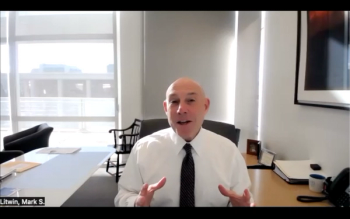
Dr. Dielubanza: Urology path has ‘exceeded my expectations’
"Restoring form and function to my patients with my care and interventions is both intellectually challenging and rewarding," says Elodi Joy Dielubanza, MD.
“Women in Urology” is a new Urology Times section in which women in the field share their path to the specialty and give advice for women considering a career in urology. Stacy Loeb, MD, MSc, assistant professor of urology and population health, New York University Langone and the Manhattan VA, New York, serves as section editor for “Women in Urology.” This installment features Elodi Joy Dielubanza, MD, associate surgeon in the Division of Urology at Brigham and Women's Hospital in Boston.
Please describe your practice type and area(s) of clinical/research interest.
I am an associate surgeon in the Division of Urology at Brigham and Women’s Hospital in Boston. My specialty is female pelvic medicine and reconstructive surgery, and my clinical and research interests center on voiding dysfunction, vaginal surgery, and female pelvic disorders including incontinence, prolapse, urethral disorders, genitourinary fistula, and infections.
What prompted you to pursue urology as a specialty?
While in medical school, I knew that I loved surgery but also desired the type of patient continuity I saw in medical specialties. Urology really married continuity of care with what I found to be some of the most dynamic, diverse, and interesting questions in surgery.
Also see:
Most importantly, when I looked around the urology faculty at my medical school and beyond, I found that there were many models for me. It was especially inspiring to see so many women surgeons who had the type of practice, life, and impact that I wanted. The women I saw were busy surgeons, advocates for their patients, dedicated teachers, thoughtful investigators, and yet present and engaged in their lives and families outside of medicine.
I knew that I was setting a high bar for myself and I knew that I would find great mentors all along the way, and that was really important to me.
My path in urology has exceeded my expectations. At each step along the way, I have enjoyed the support and guidance of a wide group of truly committed teachers and mentors. Restoring form and function to my patients with my care and interventions is both intellectually challenging and rewarding. I am constantly working to live up to the legacy of mentorship from which I have benefited.
Next:
Although women are becoming increasingly prevalent in urology, they are still greatly outnumbered by men. What challenges do you face as a woman working in a specialty that is mostly male?
Though the demographics of surgery have changed considerably in the last several decades, the culture of surgery has not changed as quickly. I think there is still a tension between surgical practice and women’s work-life balance that can be managed more effectively. I think the key to improving this is to continue to advance female leadership. Women leaders add important insight.
What advice would you give a female medical student who might like to pursue urology?
Go for it! Urology is not only an exciting clinical specialty but also an unparalleled community of colleagues, teachers, and mentors.
Newsletter
Stay current with the latest urology news and practice-changing insights — sign up now for the essential updates every urologist needs.






